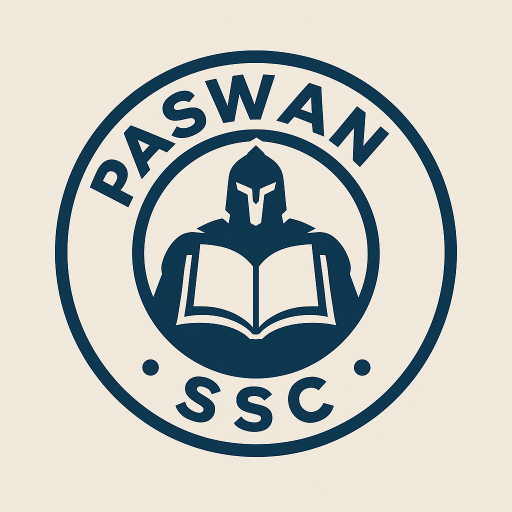English – SSC CGL Tier-1 Practice Set (25 Questions)
Section-wise practice
Cloze Test (Q1–Q5)
Fill the blanks with the most appropriate option.
Q1. (1) — choose the best fit.
“Not merely viable but catalytic to innovation” = actively spurring innovation.
Q2. (2) — “adopt ____ documentation”.
“Rigorous documentation” = thorough, precise.
Q3. (3) — “distance can ____ clarity”.
“Compel clarity” = force clearer writing/prioritising.
Q4. (4) — “_____ knowledge silos”.
“Ossifying silos” = becoming rigid/hard to break.
Q5. (5) — “equitable _____ mechanisms”.
Fair systems to acknowledge contributions.
Error Spotting (Q6–Q8)
Identify the part with an error (A/B/C/D). If no error, choose (E).
Q6. The panel’s recommendations has triggered (A) / a comprehensive review of policy, (B) / but implementation are still (C) / awaiting budgetary clearance. (D) / No error (E)
Subject is plural (recommendations) → should be “have triggered”.
Q7. Neither the minister nor his advisors were prepared (A) / to defend the data, (B) / which appear inconsistent (C) / with the audit trail. (D) / No error (E)
With “neither…nor”, verb agrees with the nearer subject advisors → “were”. Also “data” as plural → “appear”.
Q8. The university has instituted (A) / an ethics course for mitigate biases (B) / in research design, (C) / especially at postgraduate level. (D) / No error (E)
Use “to mitigate” / “for mitigating”, not “for mitigate”.
Fill in the Blanks (Q9–Q10)
Choose the option that best completes the sentence.
Q9. The analyst’s forecast was not merely optimistic; it was _____, assuming a market expansion unsupported by underlying demand.
Means idealistic/unrealistic.
Q10. The committee recommended a _____ approach, combining immediate relief with structural reforms to address chronic underinvestment.
Comprehensive approach = holistic.
Sentence Improvement (Q11–Q12)
Choose the best version.
Q11. If the negotiations will fail, the merger plan collapses.
If-clauses take simple present for future condition: “If… fail”.
Q12. The startup scaled quickly, owing to it raised a substantial seed round and disciplined hiring.
Gerund after “owing to”.
Para Jumble (Q13–Q15)
Arrange P–S to form a coherent paragraph.
Q13. Set 1
P. Yet, when scaled, these models often reproduce historical inequities embedded in the data.
Q. Predictive algorithms promise neutrality by deferring to patterns.
R. The aspiration for fairness, therefore, cannot be outsourced to mathematics.
S. Instead, it requires contestable processes and continual auditing.
Claim (Q) → problem (P) → inference (R) → remedy (S).
Q14. Set 2
P. In crises, people seek leaders who speak plainly without trivialising complexity.
Q. Jargon signals expertise but can alienate precisely those who need guidance.
R. Clarity, then, is not simplification; it is disciplined explanation.
S. This demands empathy with the audience’s prior knowledge.
Context (P) → caveat (Q) → definition (R) → requirement (S).
Q15. Set 3
P. However, incentives must align with measurable learning outcomes.
Q. Gamified courses can sustain engagement through immediate feedback.
R. Otherwise, they risk rewarding speed over understanding.
S. This is particularly relevant in professional reskilling programmes.
Context (S) → claim (Q) → condition (P) → risk (R).
